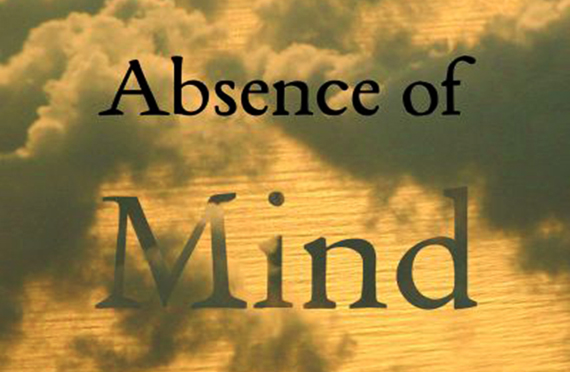This review first appeared in the Christian Research Journal, volume 34, number 02 (2011). For further information or to subscribe to the Christian Research Journal go to: http://www.equip.org
Marilynne Robinson is known to many as the Pulitzer Prizewinning author of Gilead and also for other works of fiction. In Absence of Mind, Robinson contributes to the genre of prophetic humanism1 epitomized by G. K. Chesterton’s Orthodoxy and C. S. Lewis’s The Abolition of Man. Her essay resembles these classic works both in its incisive, pithy style and in its central aims: the critique of reductionist, modernist ideologies and the defense of the classical, Judeo-Christian understanding of human nature. While all three books respond to materialist attempts to debunk the traditional understanding of the self, Robinson’s work engages not only the older reductionism of Comte, Freud, Marx, and Skinner, but also the newer versions of E. O. Wilson and Steven Pinker.
Parascience. Robinson argues that much of the writing that the modern mind takes to be scientific is really parascientific, a kind of literature “that makes its case by proceeding, using the science of its moment, from a genesis of human nature in primordial life to a set of general conclusions about what our nature is and must be” (p. 32–33). In the eyes of its proponents, parascientific literature serves to propagate an enlightened substitute for the picture of humanity found in the outmoded, superstitious ramblings of revealed religion and classical literature.
In fact, as Robinson argues, parascience trades heavily on a modern myth, the triumphalist claim that humanity has finally crossed the threshold separating ignorance and true understanding (5). Writing in this vein, Auguste Comte, the father of positivist philosophy, deserves the palms for his assertion in 1865 that “the preparatory labours of modern Science are ended” (33). Many other thinkers, however, including contemporary evolutionary psychologists, present their favored theories with the same unwarranted certainty and missionary zeal, dismissing as delusion any data that does not fit: “Debunking is pursued as if it were an urgent crusade, at whatever cost to the wealth of insight into human nature that might come from attending to the record humankind has left” (29).
The Inside Story. Robinson notices that the varieties of modernist reductionism exhibit a curious paradox: they are deeply inconsistent with one another, yet agree in their fundamental rejection of humanity’s natural self-understanding. Thus, the “Freudian neurasthenic is not the Darwinian primate, who is not the Marxist proletarian, who is not the behaviorist’s organism,” yet all four constructs exclude “the testimonies of culture and history” (xvi). In order to do this, these and similar ideologies seek to undermine the legitimacy of the subjective view: the way things seem to us from the inside. Consciousness, personal identity, and free will are all troubling to the modernist because they cannot readily be reduced to the impersonal, monistic categories of materialism. Since parascience absolutizes contemporary paradigms of science, it does not see these mental qualities as data that might be understood by some more expansive future theory, but rather seeks to “deny the reality of phenomena it cannot accommodate, or to scold them for their irksome, atavistic persistence” (72). Since it is hard to deny the existence of consciousness, the more common strategy is to reject its contents as illusory. In this way, any testimony drawn from our lived experience can conveniently be dismissed, insulating modernist theories from falsification.
Robinson considers several examples that illustrate the strategy. Applying it to religion, cognitive scientist and atheist philosopher Daniel Dennett dismisses the religious experience of faithful believers in favor of materialist speculations about the causes of religious behavior (8–9). In ethics, the intuition that altruism is real is rejected in favor of the Darwinian idea that all behavior must serve genetic interests. Ironically, not only does this theory ignore facts of experience—firefighters save people with no close genetic connection (63)—but it is also undercut by the theory of memes (another reductionist theory), since there could be a meme for altruism (70). In its way, evolutionary psychology continues the central, skeptical implication of Freudianism: “the mind is not to be trusted.” The unexplained exception is the modernist, who believes he really knows what drives us. Yet every cultural achievement humans have enjoyed by relying on the creative powers of their minds contradicts this skepticism: “As proof of the existence of mind we have only history and civilization, art, science, and philosophy” (120).
Absence of Mind is a masterful diagnosis of the modernist malaise that causes people to distrust the testimony of their own minds. I suspect Robinson’s beautifully written work will join those of Chesterton and Lewis in the top rank of prophetic humanism. —Angus Menuge
Angus Menuge, Ph.D., is professor of philosophy at Concordia University, Wisconsin.
NOTES
-
- By “humanism” I do not mean “secular humanism.” Rather, I intend the humanism of the Renaissance, which developed a rich understanding of human nature, combining the insights of classical literature and philosophy with Judeo-Christian theology. Anyone upholding this vision against the materialist theories now in vogue will appear prophetic.









